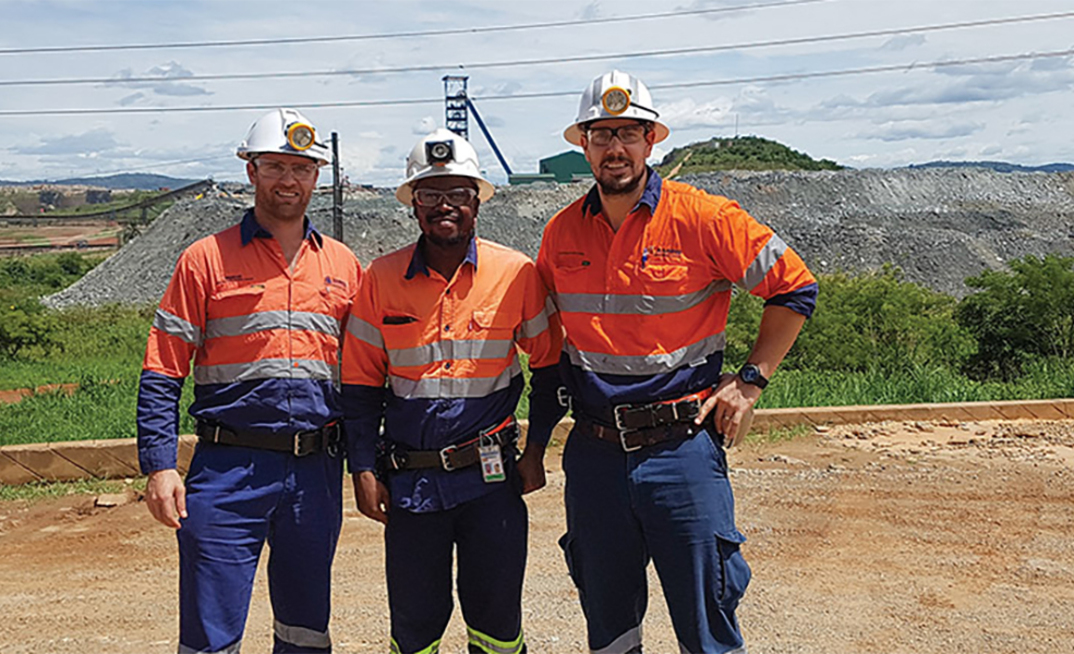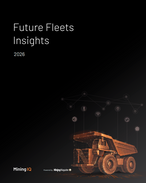Skills shortages is close to being the number one topic in the mining industry these days, and Brendan Parker sees this situation getting worse. However, the managing director and chief executive officer of Fremantle-based Advanced Mining Production Systems (AMPS) believes it is not just a question of numbers of mining professionals available - but of the quality of the people.
AMPS has witnessed the decline in the tertiary training of mining specialists in recent years. Fewer than 55 mine engineering graduates are expected to come out of Australian universities at the end of their courses in 2021. There has been a noted downtrend over the past five years, and that downtrend looks like continuing.
The shortages are, in Parker's view, particularly acute in mining engineering, the vital factor in any mine's successful development and operation. "Everyone in the mining industry wants good people, not just bums on seats," adds Parker.
One of the key points he wants to emphasise about training is that AMPS can provide training when it is needed. That is, mining engineers and mining professionals have traditionally been trained in mining schools and universities in a solid full-time course. They impart learning skills they may not need until they become senior people in their fields, perhaps 10 years into their careers in the case of completing life of mine designs (to give one example).
"The mining industry requires experience as part of the training," says Parker. "Universities are only a small part of the need, with mentoring needed once you become part of the industry."
Moreover, universities need big numbers of students to sustain the economics of courses, and the mining student numbers - especially with the absence of international students - cannot cover the costs of specialist mining courses. Hence, the present and growing shortages of essential skilled people. "It's really scary," says Parker. "We just don't have the number of mine engineers that we need."
This has meant that AMPS, which began with the main focus on providing consulting in the field and mentoring mine employees, is now seeing its training business surge as well to bridge the gap.
Parker, himself a mining engineer (graduated 2003 from the Western Australian School of Mines), did the hard yards - five years of fly-in, fly out followed by consulting. That work gave him broad experience of projects in Australia, Canada and China.
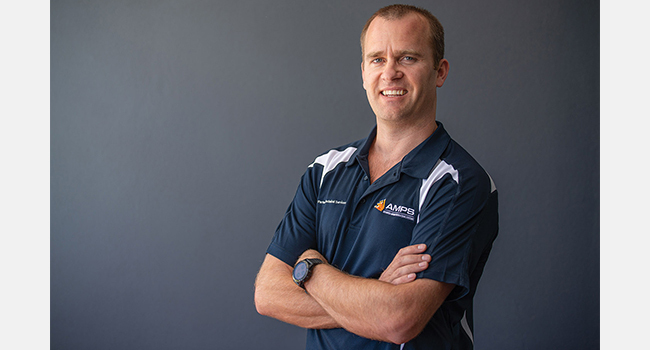
Brendan Parker
Then, at the age of 28, he set up AMPS. The company now employs about 55 people and, in the past 12 to 18 months, has been adding a new staff member on average every three weeks.
The AMPS business idea was conceived back in 2011 when Parker realised that the skills and knowledge of new engineers coming into the workforce were inadequate compared with the industry's expectations.
Parker set out to bridge this gap with what the company now describes as a collaborative approach with mining technical services, providing education, technical support, developing and implementing systems and training to mines all over the world. AMPS has developed a business model that offers a new way of thinking for the mining industry, offering a combination of on-site support and in-house design services. The main focus has been on mining engineers who are in the early stages of their careers.
"Our organisational culture is key to our ongoing business success and sets us apart within the industry," the company notes. "We are committed to supporting a workplace that encourages collaboration and leadership while enabling our team members to thrive professionally and personally."
There was a pause in AMPS's growth during the 2014 downturn in the mining industry, a blip that was felt throughout the mining sector. But, of late, most in-person courses have been sold out, with big demand for courses that range from open pit and underground design and optimisation, planning, scheduling, stope design, as well as in drilling and blasting.
AMPS has in recent years delivered classroom course across Australia, in the main cities such as Brisbane, Sydney, Melbourne and Perth, and at mine sites.
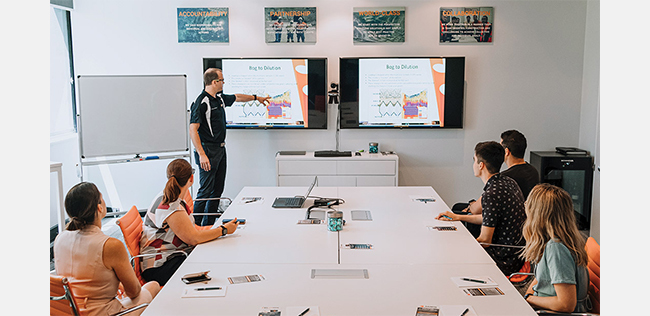
This is in addition to the company's consulting portfolio over the years which includes numerous Australian companies. Examples: providing contract geological services, engineering and optimisation reviews to Doray Mining at its Yalgoo gold project, working with Newmont Mining at Boddington and OZ Minerals at Prominent Hill. Its global jobs have included working in China advising Jinchuan Nickel and the operators of the White Mountain gold mine, with Randgold in the DR Congo and AngloGold Ashanti in Brazil, and consulting on stope design and other issues at OceanaGold's Macraes mine in New Zealand.
Now, following the successes with its Australian courses and the demand, the company has brought forward the launch AMPS Academy, an online technical services training program designed to assist in closing capability gaps for technical professionals in the resources industry, as well as helping develop job-ready technical mining skills. The development of this new and exciting platform is now in its final planning stages.
AMPS Academy, when launched in September, is intended to bridge the gap between university education and industry standards. The company's strategy is to develop a cadetship for the resources industry, something that was decided upon after consulting with industry leaders who saw the need for a new training model. The academy will focus on current, new and existing mining industry professionals.
There will be online courses in environment, heritage and community; geoscience, mine planning, surveying; geotechnical; mineral processing; hydrogeology; mine accounting and finances; and mine closure.
Practitioner units for those taking up the course will include economic definition of ore, mine design optimisation; strategic mine planning, mine design, geotechnical design and cost modelling.
"We are revolutionising the way mining education is provided," says Parker. The online courses will provide what he calls engaging content in various languages (English, Chinese and Spanish principally, the last aimed at the large mining sector in South America). "Everyone can continue to upscale their skills during their career," he adds.
And more courses will be added, including possibly cyber security for mining companies.
"There is a really big gap in availability of practical training to allow people to upscale their careers," says Parker, who says he is eager to get the message out that there is a real crisis in educating future mining professionals, especially with the world needing more mines and output as it turns to electric vehicles and clean energy.
As a recent critical minerals report from the International Energy Agency showed, EVs and battery storage have already displaced consumer electronics to become the largest consumer of lithium and are set to take over from stainless steel as the largest end user of nickel by 2040.
Parker wants to see the industry meet that challenge. "Being a mining engineer myself, I want to see the industry thrive."
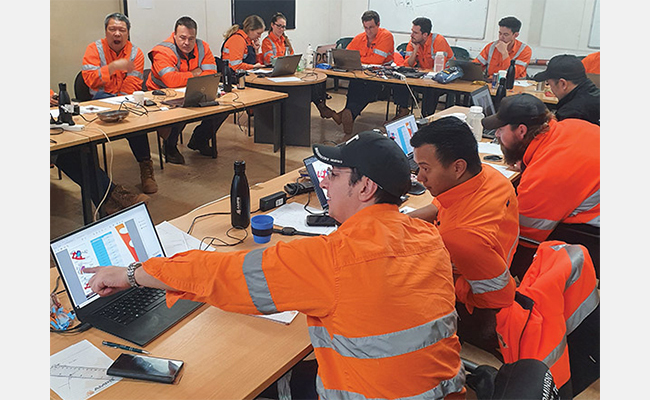
ABOUT THIS COMPANY
Advanced Mining Production Systems
HEAD OFFICE:
- P.O. Box 1082, Fremantle WA, 6959
- Phone: 1300 885 404
- Website: www.advancedmps.com
- Email: [email protected]


